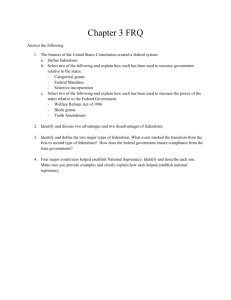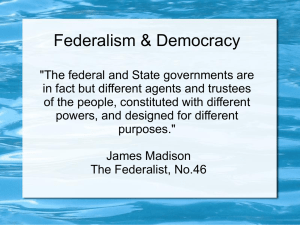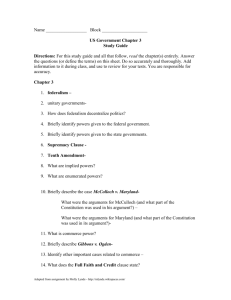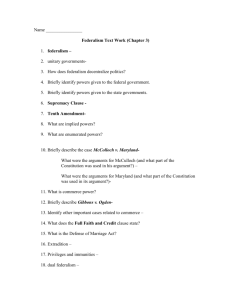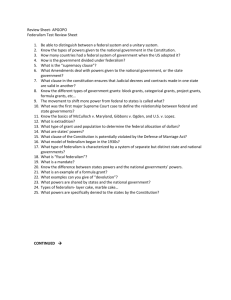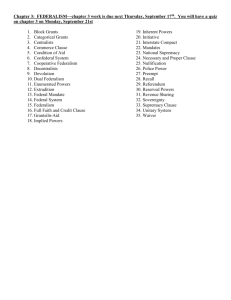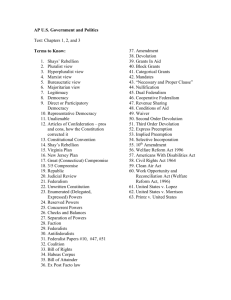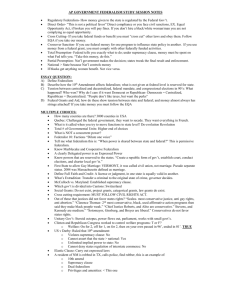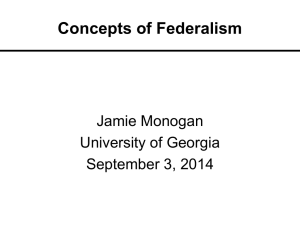AP Government Mr. Hechter Terms and Objectives Questions Be
advertisement
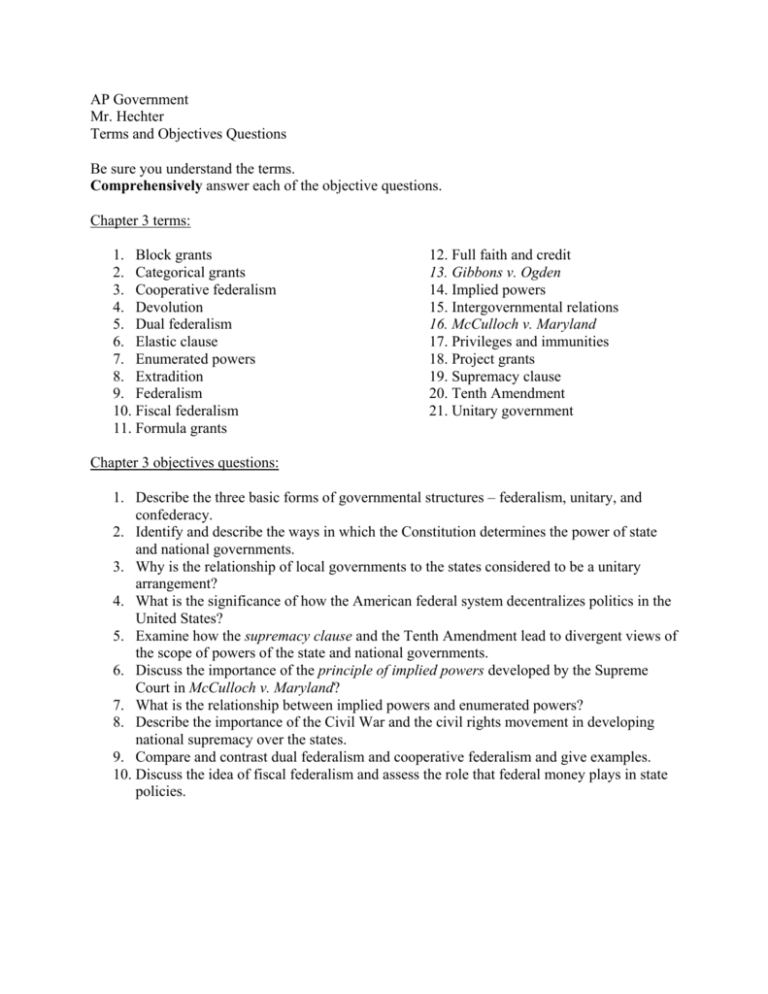
AP Government Mr. Hechter Terms and Objectives Questions Be sure you understand the terms. Comprehensively answer each of the objective questions. Chapter 3 terms: 1. Block grants 2. Categorical grants 3. Cooperative federalism 4. Devolution 5. Dual federalism 6. Elastic clause 7. Enumerated powers 8. Extradition 9. Federalism 10. Fiscal federalism 11. Formula grants 12. Full faith and credit 13. Gibbons v. Ogden 14. Implied powers 15. Intergovernmental relations 16. McCulloch v. Maryland 17. Privileges and immunities 18. Project grants 19. Supremacy clause 20. Tenth Amendment 21. Unitary government Chapter 3 objectives questions: 1. Describe the three basic forms of governmental structures – federalism, unitary, and confederacy. 2. Identify and describe the ways in which the Constitution determines the power of state and national governments. 3. Why is the relationship of local governments to the states considered to be a unitary arrangement? 4. What is the significance of how the American federal system decentralizes politics in the United States? 5. Examine how the supremacy clause and the Tenth Amendment lead to divergent views of the scope of powers of the state and national governments. 6. Discuss the importance of the principle of implied powers developed by the Supreme Court in McCulloch v. Maryland? 7. What is the relationship between implied powers and enumerated powers? 8. Describe the importance of the Civil War and the civil rights movement in developing national supremacy over the states. 9. Compare and contrast dual federalism and cooperative federalism and give examples. 10. Discuss the idea of fiscal federalism and assess the role that federal money plays in state policies.
